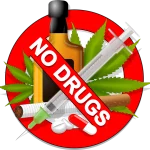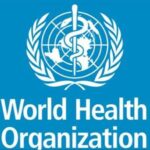Is a Drug-Free World Possible?

The issue of drug abuse has plagued societies for centuries, leading to devastating consequences for individuals, families, and communities. Many individuals and organizations have long dreamt of a drug-free world, where substances like cocaine, heroin, methamphetamine, and other illicit drugs do not exist, or at least do not find their way into the hands of vulnerable individuals. While the aspiration for a drug-free world is noble, achieving such a utopian vision remains a complex and multifaceted challenge.
This article will delve into the reasons behind drug use, the efforts to eliminate drug abuse, and the potential avenues to move closer to a drug-free society.
The Pervasiveness of Drugs
Drugs have been part of human history since ancient times, with some substances used for medicinal or spiritual purposes. However, the abuse of drugs, leading to addiction and societal problems, has escalated dramatically in modern times. Various factors contribute to the prevalence of drug use, including peer pressure, social environments, mental health issues, and economic disparity. Moreover, the allure of altered states of consciousness and the desire to escape from the pressures of everyday life can be powerful driving forces behind drug consumption.
Efforts to Combat Drug Abuse
Governments, international organizations, and communities worldwide have invested significant resources in combating drug abuse. These efforts have typically focused on supply reduction, demand reduction, and harm reduction strategies.
- Supply Reduction: Supply reduction strategies aim to curtail the production, trafficking, and distribution of illegal drugs. Governments and law enforcement agencies collaborate to intercept drug shipments, dismantle drug cartels, and impose strict penalties on drug-related offenses. While these measures have achieved some successes, drug traffickers are often resourceful and adaptive, finding new ways to evade law enforcement.
- Demand Reduction: Demand reduction strategies aim to address the root causes of drug abuse by providing prevention, treatment, and rehabilitation programs. Public education campaigns, school-based prevention programs, and community outreach initiatives aim to discourage drug use and help those struggling with addiction. While these efforts have proven effective for some individuals, the stigmatization of drug addiction remains a significant barrier to seeking help.
- Harm Reduction: Harm reduction strategies focus on minimizing the negative consequences of drug use without necessarily requiring abstinence. Programs such as needle exchanges, safe injection sites, and opioid substitution therapy aim to reduce the spread of infectious diseases and prevent overdose deaths. While these measures have been shown to save lives, they have also faced significant opposition from those advocating a zero-tolerance approach to drugs.
Challenges to a Drug-Free World
Despite these comprehensive efforts, several challenges make the realization of a drug-free world extremely difficult:
Human Nature and Curiosity
Humans have an inherent curiosity about altered states of consciousness, and this fascination has been observed throughout history. The allure of experimenting with mind-altering substances may always be present, regardless of the efforts to eradicate drugs from society.
Profit Motives and Illegal Markets
The vast profits associated with drug trafficking provide a powerful incentive for criminal organizations to continue their operations. As long as demand for illicit drugs exists, illegal markets will find ways to supply them, perpetuating the cycle of drug abuse.
Globalization and Technology
Advancements in technology and globalization have facilitated the rapid movement of goods, including illegal drugs, across borders. The virtual world also poses new challenges, as the dark web and cryptocurrencies provide anonymous platforms for drug transactions.
Political and Cultural Differences
The approach to drug policy varies greatly between countries, with some advocating for strict prohibition, while others emphasize harm reduction and decriminalization. These differences can impede international cooperation and the development of unified strategies.
Mental Health and Trauma
Many individuals turn to drugs as a coping mechanism for underlying mental health issues or traumatic experiences. Addressing the root causes of drug abuse requires a comprehensive approach that includes mental health support and trauma-informed care.
Potential Avenues Towards Progress
While a completely drug-free world may be an idealistic goal, there are several avenues that can lead to significant progress in minimizing drug abuse and its impact on society:
- Education and Prevention: Continued investment in comprehensive drug education programs, focusing on the dangers and consequences of drug abuse, can help deter young individuals from experimenting with drugs. Early intervention and prevention efforts can be powerful tools in reducing future drug-related problems.
- Evidence-Based Treatment and Rehabilitation: Governments must prioritize funding for evidence-based addiction treatment and rehabilitation programs. These programs should be accessible, affordable, and destigmatized to encourage individuals struggling with addiction to seek help without fear of judgment.
- International Cooperation: Collaboration between nations is crucial in addressing drug trafficking and transnational crime. Enhanced information-sharing, coordinated law enforcement efforts, and joint initiatives can disrupt the global drug trade.
- Harm Reduction: Harm reduction strategies should be further explored and expanded to address the immediate dangers of drug abuse. Safe injection sites, needle exchange programs, and access to overdose-reversing medications can save lives and provide a bridge to treatment.
- Research and Innovation: Investment in research and innovation is vital to developing alternative treatments for addiction and exploring new approaches to drug policy. Novel therapies, medications, and prevention strategies may offer promising avenues to reduce drug dependency.
Conclusion
The vision of a drug-free world remains an ambitious and challenging goal. While eliminating drug abuse entirely may prove elusive, continuous efforts to reduce drug-related harm, promote education, and prioritize treatment can lead to substantial improvements. A comprehensive approach that combines supply and demand reduction, harm reduction, and evidence-based treatment is necessary to tackle this multifaceted issue. Ultimately, by addressing the underlying factors driving drug abuse and supporting those struggling with addiction, societies can move closer to a healthier and more drug-conscious future.





